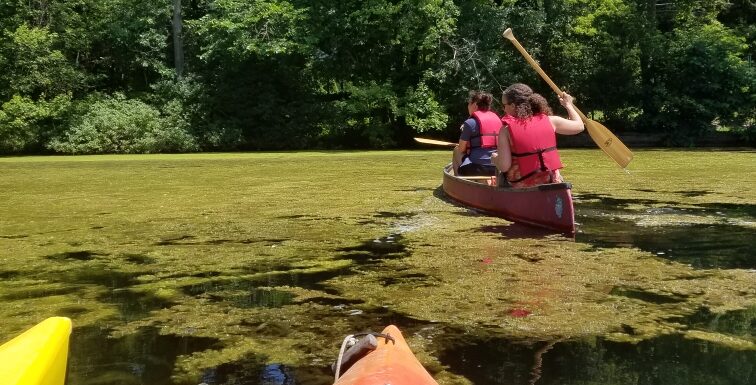
How Nutrients Are Hurting Your Campground Pond
It’s not the algae that keeps coming back, nor is it the over abundant lily pads, Eurasian milfoil, or any of the other invasives that may be taking over your water features. Without a doubt the biggest enemy facing the vast majority of ponds and lakes is excessive nutrients. Nutrients in the form of muck on the bottom, and suspended nutrients in the water column are the root cause of nearly every problem. Heavy algae blooms, prolific weed growth, and high pathogen levels are all fueled by high nutrient levels, and this is just the tip of the iceberg. So, the key to restoring and maintaining healthy, beautiful water features is without question, muck & nutrient reduction. Once restored, ongoing nutrient management will maintain healthy, balanced aquatic systems moving forward.
By and large, campground owners and managers already know that it’s a nearly impossible problem to solve. Adding to the challenge, water features are often the focal point of the camper experience, so keeping them pristine is paramount. To keep the weeds and algae at bay, herbicides and algaecides are applied. Just spray and forget, sending the dead algae and weeds to bottom where they add to the existing pile of organic muck. This is where the problem begins to escalate, as the muck gets ever deeper over time, water depth and volume are diminished, and water temps increase. This ensures the problems will get progressively worse. Additionally, chemicals are toxic and dangerous to healthy aquatic life such as minnows and tadpoles. Treatments also cause more days of shutting down water access following an application, which doesn’t make for happy campers.
Dredging is another option often considered. Typically, it’s a very messy and expensive endeavor that can be difficult to permit and contract. The actual process of removing so much material all at once from the bottomland is highly disruptive to fish habitat and other aquatic life.
More natural solutions such as aeration and muck pellets are good options for managing the nutrients, but they are expensive and only solve a small part of the problem. Aeration systems may help reduce the amount of algae and muck, but they don’t directly manage nutrients. Muck pellets help reduce the amount of decaying vegetation at the bottom of the pond, but you need to put so many in to make a significant difference that it becomes cost prohibitive. These types of bacteria applications are not all that effective at reducing phosphorus and nitrates suspended in the water column.
Bio-Health Pods are a new patented technology that hosts, grows, and distributes beneficial bacteria 24/7 in the water. Systems are easy to install, requiring minimal maintenance and a low annual cost. Their innovative design utilizes aeration to maximize beneficial bacteria production and distribution. The result is powerful and aggressive 24/7 treatment that breaks down organic bottom muck and reduces nutrient levels in the water column. Systems can be designed for ponds, lakefronts, or entire lakes. It is a completely natural and environmentally beneficial way to take away organic muck and the cause of algae, weeds, organic muck, noxious odors, and pathogens. The result is beautiful ponds and lakes with healthy aquatic systems that campers can use and enjoy.

Recent Comments